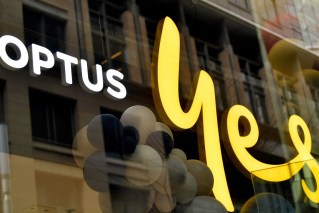Malcolm Fraser Australia’s last great ‘moderate’

The death of Malcolm Fraser robs us of the last great moderate on the conservative side of Australian politics.
Over the past two decades, moderates, progressives, small L liberals, whatever one chooses to call them, have been a dying breed within the Liberal Party.
Liberal MPs today who ostensibly still call themselves moderates, such as the federal Education Minister Christopher Pyne, bear not even a passing resemblance to the former Prime Minister, who became so despondent with the party he once led that he resigned from it in 2009. Fraser said the party no longer represented liberal values and had swung too far to the right.
• In pictures: Malcolm Fraser’s life and career
• ‘Voice for human rights’: tributes flow for Malcolm Fraser
• Lib elders slam child detention
• Vale Gough Whitlam: political titan farewelled
The means by which he became Prime Minister, pulling down the progressives’ much-beloved Labor PM Gough Whitlam, is an indelible part of Mr Fraser’s political epitaph. But what he did in the years that followed, after winning government in his own right, should be the way PM Fraser is most remembered.
Mr Fraser may have brought Whitlam’s ambitious reform agenda to a shuddering halt, but he was no slouch in the social reform stakes either. His government introduced or improved support for low-income families, pensioners and the unemployed.
Australia’s borders were opened up to refugees and the Human Rights Commission was established. The multicultural public broadcaster SBS was also created.

Frenemies: Fraser (L) with Gough Whitlam. Photo: AAP
By today’s standards Mr Fraser’s environmental protection decisions would almost designate him an activist, although his refusal to overrule the Tasmanian Government on the Franklin Dam was a late black mark that ultimately helped Labor leader Bob Hawke defeat him in 1983.
Times have changed considerably for Liberal moderates since the Fraser years. By the time John Howard returned the Liberals to government 13 years after Fraser lost it, behaving like a small L liberal had become a career-limiting move.
Moderates from the Fraser years had moved on (or been moved on) such as Peter Baume, who was variously Fraser’s minister for Aboriginal affairs, health and education, and Ian Macphee who oversaw the increased refugee intake, and later helped to establish the SBS. During John Howard’s first stint as Opposition Leader, Macphee crossed the floor against the Liberals in support of a Labor motion criticising Mr Howard’s comments on Asian immigration.

Fraser greets Margaret Thatcher at Downing Street to discuss the Russian invasion of Afghanistan in February 1980.
Subsequently, Macphee lost Liberal pre-selection for his seat.
Howard so consistently favoured right-wingers or dries when promoting MPs that ambitious moderates or wets eventually had to resort to assimilation to get into ministry. Perhaps the most extreme example of that lurch to the right was Phillip Ruddock, who had been one of two other MPs who’d accompanied Ian Macphee when he’d crossed the floor. Ruddock later implemented the Howard Government’s hard line policies on asylum seekers, as did another ‘moderate’ Amanda Vanstone, who succeeded Ruddock in that role.
Other progressives fared less well. Petro Georgiou, Bruce Baird, Judith Troeth, Judy Moylan and Mal Washer variously stood their ground against their right-wing peers, but eventually left parliament in frustration or despair.
Now in the Abbott Government, Liberal moderates have taken their cues from Ruddock and not Georgiou, getting into Cabinet by either giving lip service to the Liberal Party’s conservative credo, or undergoing a genuine conversion. These include Christopher Pyne, who was serially overlooked for promotion by Howard because he was a progressive, Julie Bishop, Joe Hockey, Greg Hunt and George Brandis.
The choice facing today’s moderate Liberal MPs is to convert or leave. Either way, the liberal tradition previously upheld by the great Liberal progressives like Malcolm Fraser is not only being denied but slowly expunged from Australian politics.
In fact, the Liberal party is threatening its moderates with extinction. No wonder Malcolm Fraser could hardly recognise his once-beloved party and choose to reject the staunchly conservative philosophy that it embodies today.
Paula Matthewson was media adviser to John Howard in the early 1990s and then worked for almost 25 years in communication, political and industry advocacy roles. She is now a freelance writer and communications strategist. Paula has been tweeting and blogging about politics, the media and social media since 2009 under the pen name @Drag0nista.







